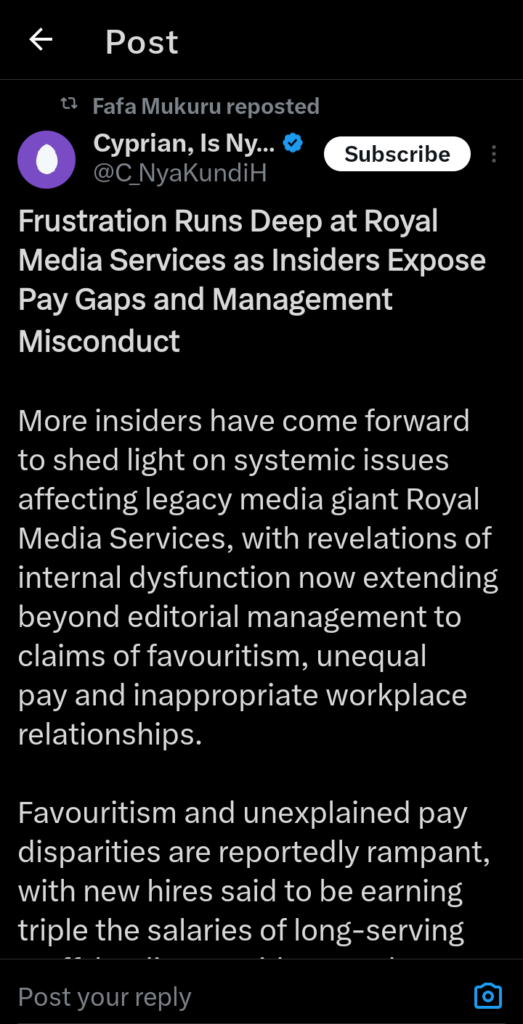Frustration is mounting among employees of Royal Media Services (RMS) as insiders reveal troubling details about pay disparities, favoritism, and unethical practices within the organization.
Once considered a beacon of professionalism in the media industry, RMS is now on the spot for its alleged failure to address systemic issues that have left many staff members feeling demoralized and undervalued.
One of the most striking claims revolves around massive pay gaps between employees.
Reports indicate that new hires, often brought in through questionable connections, earn up to three times the salaries of long-serving staff.
This has created a toxic work environment where experience and loyalty are undervalued, and compensation appears to be based more on who you know than on your skills or contributions.

Long-serving employees, who have dedicated years to the company, feel overlooked and betrayed, while the hefty salaries of newcomers only deepen the resentment.
This uneven treatment has reportedly led to an exodus of prominent journalists from RMS.
Many have sought opportunities elsewhere, unable to tolerate the frustration of watching their dedication go unrewarded.
The loss of seasoned talent is not only a blow to RMS but also a reflection of deeper problems within the company’s management structure.
The situation paints a picture of an organization struggling to retain its best people because it prioritizes favoritism over fairness.
Adding to the problem are allegations of inappropriate workplace relationships involving senior management and staff members.
The so-called “bed-to-bed” culture has become an open secret, with some insiders claiming that promotions and job security are influenced by personal relationships rather than merit.
This not only undermines professionalism but also creates a hostile work environment where employees feel pressured to conform to unethical practices to secure their positions.
One former employee described the situation in a detailed exposé, stating that the “rot” at RMS cuts across all departments.
They noted how unfair pay practices and the normalization of inappropriate behavior have eroded trust and morale within the company.
For many, RMS has become a place where frustration and disappointment overshadow career growth and job satisfaction.
The ex-employee advised others to “view the company from a distance,” underscoring the severity of the internal dysfunction.
As a leading media house in Kenya, RMS plays a pivotal role in shaping public discourse and providing credible information.
However, the alleged internal problems could tarnish its reputation and compromise its ability to maintain journalistic integrity.
If the company fails to address these issues, it risks losing not only its employees but also the trust of its audience.
In an industry where transparency and fairness are critical, the accusations against RMS demand serious attention.
Employees deserve an environment that values their contributions and upholds ethical standards.
Without immediate action to address these concerns, RMS risks further decline, both in employee satisfaction and public trust.





















Add Comment